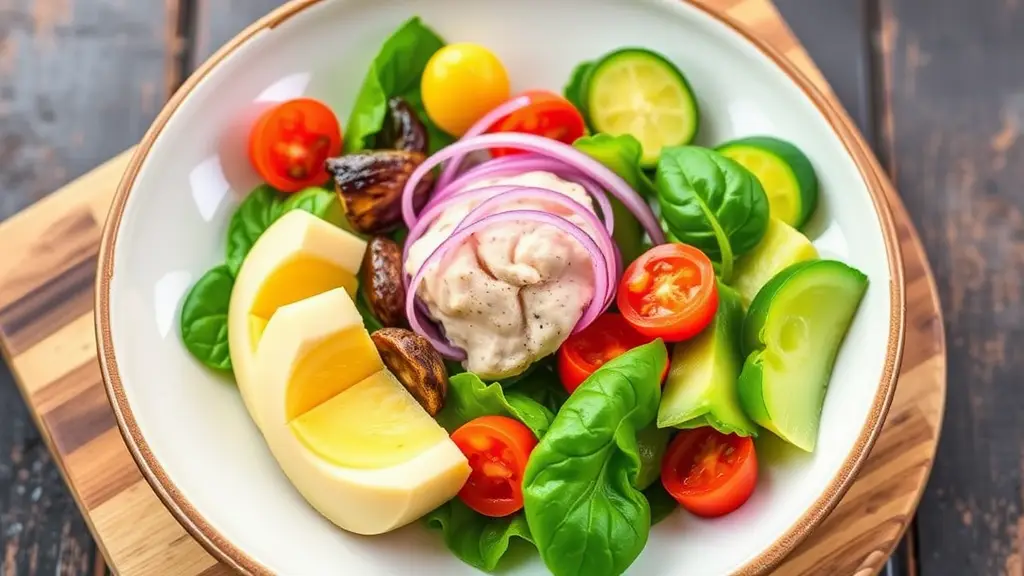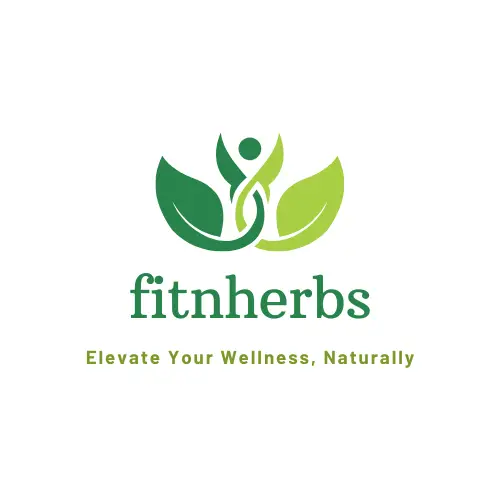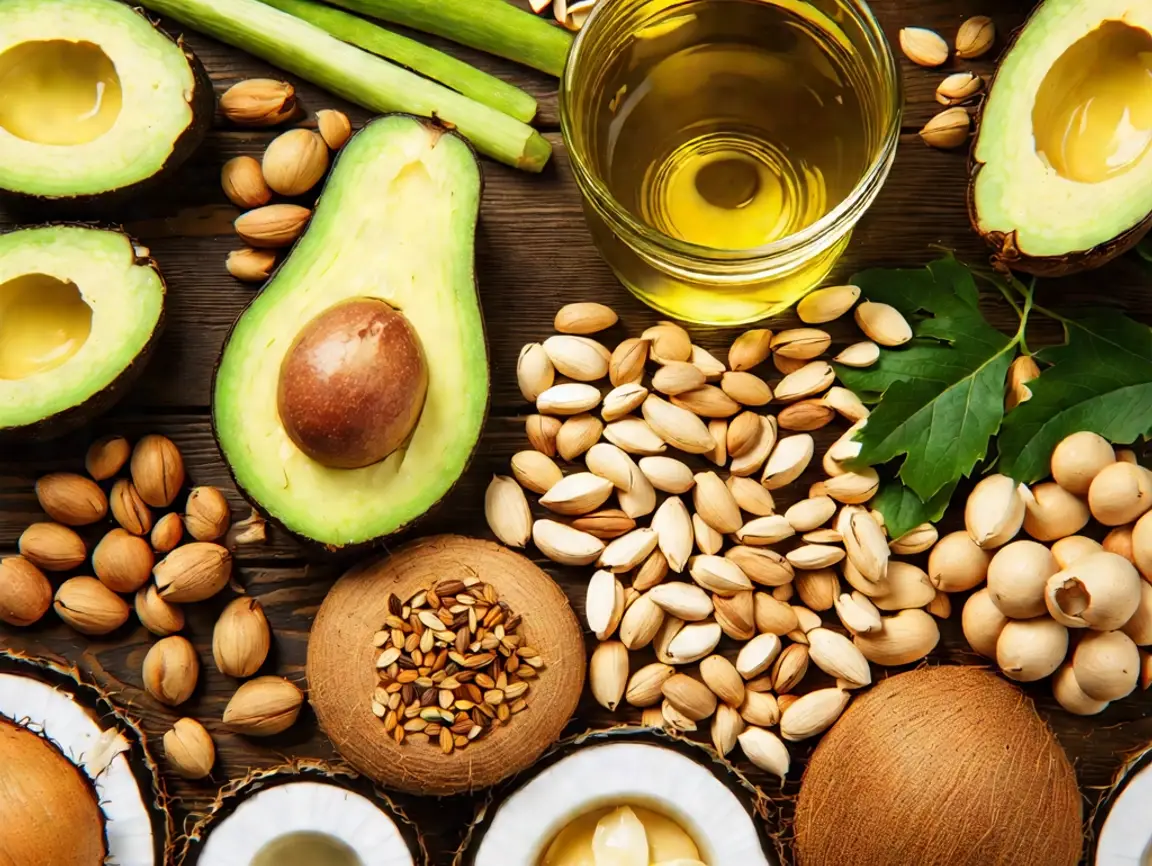Essential Vegan Fats: Nutritional Benefits and Sources
Navigating the world of plant-based nutrition requires understanding the critical role of healthy fats in maintaining optimal health. For vegans and health-conscious individuals, incorporating the right types of fats can transform your dietary approach and support overall wellness.
Understanding Plant-Based Fat Essentials
Healthy fats are fundamental to numerous bodily functions, including hormone production, nutrient absorption, and cellular protection. Vegan diets can easily meet fat requirements through strategically chosen plant-based sources that provide essential nutrients without compromising nutritional balance.

Top Nutrient-Dense Vegan Fat Sources
- Avocados: Packed with monounsaturated fats, potassium, and fiber
- Nuts and Seeds: Excellent sources of omega-3 and omega-6 fatty acids
- Coconut Products: Provide medium-chain triglycerides for quick energy
Omega-Rich Powerhouses for Plant-Based Diets
Specific plant sources offer remarkable omega fatty acid profiles that support cardiovascular and brain health. Harvard Health recommends incorporating diverse fat sources to ensure comprehensive nutritional intake.
Detailed Breakdown of Vegan Fat Sources
- Chia SeedsThese tiny seeds are nutritional miracles, containing approximately 60% omega-3 fatty acids. They’re easily digestible and can be sprinkled on salads, smoothies, or baked goods.
- Olive OilExtra virgin olive oil provides heart-healthy monounsaturated fats and powerful antioxidants. Use it for low-heat cooking or as a salad dressing.
- Flaxseeds are another omega-3 powerhouse. They help reduce inflammation and support hormonal balance. Ground flaxseeds are more easily absorbed by the body.
Nutritional Strategies for Fat Absorption
Maximizing fat absorption requires understanding how different nutrients interact. Pairing fat-soluble vitamins with healthy fats can enhance nutrient uptake. For instance, consuming vitamin K-rich foods with avocado dramatically increases absorption.
Considerations for Optimal Fat Intake
- Prioritize unprocessed, whole food sources
- Maintain a balanced intake of different fat types.
- Monitor portion sizes to prevent overconsumption.
Scientific Perspectives on Vegan Fats
Research from the National Institutes of Health suggests that plant-based fats can significantly reduce cardiovascular disease risk and support metabolic health.
Potential Health Benefits
- Improved heart health
- Enhanced cognitive function
- Better skin and hair quality
- Reduced inflammatory markers
Understanding and implementing a diverse range of vegan fat sources can revolutionize your nutritional approach. Selecting whole, nutrient-dense options and maintaining balanced consumption support your body’s complex metabolic needs while you enjoy delicious, satisfying meals.
Consult a registered dietitian for personalized nutritional guidance tailored to your health requirements.
Top Plant-Based Fat Options for Optimal Health
Navigating the world of healthy fats can be challenging for those following a plant-based diet. Fortunately, numerous delicious and nutritious fat sources can support your overall wellness and provide essential nutrients.
Understanding Plant-Based Fat Essentials
Healthy fats are crucial in nutrient absorption, hormone production, and cellular function. For vegans, selecting the right fat sources can significantly improve their maintenance of optimal health and energy levels.
Nutrient-Dense Vegan Fat Sources
- Avocados: Packed with monounsaturated fats and potassium, avocados offer a creamy texture and heart-healthy benefits. They’re excellent for cardiovascular health.
- Chia Seeds: These tiny powerhouses contain omega-3 fatty acids, fiber, and protein. They can be easily incorporated into smoothies, puddings, and baking recipes.
- Nuts and Nut Butter: Almonds, walnuts, and cashews provide essential fatty acids and minerals. Almond butter and cashew cream can be delightful additions to your diet.
- Coconut: In oil, milk, or whole form, coconut offers medium-chain triglycerides (MCTs) that support metabolism and provide quick energy.
- Hemp Seeds: Rich in omega-3 and omega-6 fatty acids, hemp seeds support brain function and reduce inflammation.
- Olive Oil: A Mediterranean diet staple, extra virgin olive oil contains powerful antioxidants and anti-inflammatory compounds.
- Flaxseeds: Another excellent source of omega-3 fatty acids, flaxseeds can be ground and added to various dishes.
- Tahini: Made from ground sesame seeds, tahini offers calcium, healthy fats, and a nutty flavor, perfect for dressings and sauces.
- Algae-Based Oils: Derived from marine algae, these oils provide sustainable and direct omega-3 fatty acids without relying on fish sources.
Maximizing Fat Absorption and Benefits
Combine these fat sources with vegetables and other plant-based foods to optimize nutrient absorption. Fat-soluble vitamins like A, D, E, and K require dietary fats for proper absorption.
Portion Control Considerations
While these fats are healthy, moderation remains key. Aim for 20-35% of daily calories from fat sources, focusing on quality over quantity.
Cooking and Preparation Tips
Experiment with different preparation methods to enhance flavor and nutrition. Roasting nuts, blending seeds into smoothies, or drizzling olive oil over salads can make incorporating these fats enjoyable.
Potential Health Advantages
Consuming plant-based fats can contribute to:
- Improved heart health
- Better brain function
- Enhanced skin and hair quality
- Reduced inflammation
- Balanced hormone production
For more detailed nutritional guidance, consult resources like the Academy of Nutrition and Dietetics and discuss individual dietary needs with a registered nutritionist.
Remember that diversity is crucial. Rotate between different fat sources to ensure a comprehensive nutrient profile and prevent potential nutritional deficiencies.
Incorporating Healthy Fats into Vegan Meal Planning
Plant-based diets require strategic nutrition planning, and healthy fats are crucial in maintaining overall wellness. Understanding which vegan fat sources provide optimal nutritional benefits can transform your meal preparation and support your health goals.
Essential Vegan Fat Sources for Balanced Nutrition
Diverse fat sources ensure your body receives essential nutrients while maintaining a plant-based lifestyle. Let’s explore nine nutritional powerhouses that can elevate your dietary approach:
- Avocados: These creamy fruits deliver monounsaturated fats and essential nutrients. They are also rich in potassium and fiber, support heart health, and provide sustained energy. Slice avocados and add them to salads and smoothies, or enjoy them as a standalone snack.
- Nuts and Seeds: Almonds, walnuts, chia seeds, and flaxseeds offer remarkable omega-3 fatty acids. These nutrient-dense options can help reduce inflammation and support brain function. Sprinkle them over breakfast bowls or incorporate them into homemade energy bars.
- Coconut: In oil, milk, or whole form, coconuts provide medium-chain triglycerides (MCTs) that boost metabolic function. The body efficiently processes these fats, which can contribute to sustained energy levels.
- Olive Oil: Extra virgin olive oil remains the gold standard for heart-healthy monounsaturated fats. To maximize its nutritional benefits, use it for low-heat cooking, salad dressings, and drizzling over finished dishes.
- Hemp Seeds: These tiny seeds pack a powerful nutritional punch, offering a perfect balance of omega-3 and omega-6 fatty acids. They’re excellent for supporting cardiovascular and inflammatory responses.
- Tahini: From ground sesame seeds, tahini provides calcium, protein, and healthy fats. Its versatile nature allows it to be integrated into sauces, dressings, and baked goods.
- Cacao Butter: Often overlooked, cacao butter offers a rich source of plant-based saturated fats. It’s particularly beneficial in raw desserts and can support hormone production.
- Algae-based Oils: For those seeking direct omega-3 sources, algae oils provide an exceptional alternative to fish-based supplements. They support brain health and reduce cardiovascular risks.
- Nut Butter: Almond, cashew, and macadamia nut butter delivers concentrated healthy fats and proteins. They’re perfect for spreading on toast, blending into smoothies, or using as dips.
Practical Integration Strategies
Strategically incorporating these fat sources doesn’t require complex meal planning. Start by gradually introducing diverse options into your existing diet. Experiment with different combinations and preparation methods to discover enjoyable ways of boosting your nutritional intake.
Recommended Resources
Remember that balance remains key. While healthy fats are essential, moderation ensures optimal absorption and prevents overconsumption. Consulting with a registered dietitian can help personalize your approach to plant-based nutrition.
Each individual’s nutritional needs vary, so pay attention to how your body responds when introducing new fat sources. Your journey toward comprehensive plant-based nutrition is unique and should be tailored to your health requirements.
Understanding Fat Metabolism in a Vegan Diet
Fat metabolism plays a crucial role in maintaining overall health and wellness in plant-based nutrition. Vegan diets often require strategic planning to ensure adequate fat intake and optimal metabolic function. The body’s ability to process and utilize dietary fats depends on various factors, including the types of fats consumed and individual metabolic processes.
Fat metabolism is a complex biochemical process in which the body breaks down dietary fats and converts them into energy. Understanding how plant-based fats are processed for vegans can help optimize nutritional intake and support various bodily functions.
Metabolic Pathways of Plant-Based Fats
When you consume plant-based fats, your digestive system begins a sophisticated breakdown process. Lipases, specialized enzymes, divide complex fat molecules into smaller fatty acids and glycerol. These components are absorbed through the intestinal wall and transported to the liver, where they undergo further metabolic transformations.
Key Metabolic Considerations for Vegan Diets
- Efficient absorption of fat-soluble nutrients
- Hormone production and regulation
- Cell membrane health
- Energy storage and release mechanisms
Essential Fatty Acid Conversion
Vegans must pay special attention to omega-3 fatty acids, which are typically challenging to obtain from plant sources. The body converts alpha-linolenic acid (ALA) found in foods like walnuts and chia seeds into EPA and DHA, though the conversion rate is relatively low.
Metabolic Efficiency Factors
Several factors influence fat metabolism in a vegan diet:
- Nutrient density of consumed fats
- Individual metabolic rate
- Overall dietary composition
- Physical activity levels
Metabolic Challenges and Solutions
Plant-based diets present unique metabolic challenges. The limited bioavailability of certain nutrients requires strategic dietary planning. Diverse fat sources like avocados, nuts, seeds, and plant oils can help optimize metabolic processes.
Supplementation Considerations
Some vegans might benefit from targeted supplementation to support efficient fat metabolism. Algae-based omega-3 supplements can provide direct EPA and DHA, bypassing the inefficient conversion process from ALA.
Hormonal and Metabolic Interactions
Dietary fats play a critical role in hormone production and regulation. Plant-based fats contribute to synthesizing important hormones and supporting endocrine function. Monounsaturated and polyunsaturated fats from olive oil and flaxseeds can positively influence metabolic health.
Mitochondrial Energy Production
Fats are crucial energy sources for mitochondria, the cellular powerhouses. Efficient fat metabolism ensures optimal energy production and supports overall metabolic flexibility.
Understanding fat metabolism in a vegan diet requires a holistic approach. By carefully selecting nutrient-dense fat sources and considering individual metabolic needs, individuals can maintain robust health while following a plant-based lifestyle.
Balancing Macronutrients with Vegan Fat Alternatives
Navigating the world of plant-based nutrition requires strategic thinking about healthy fat sources that support overall wellness and provide essential nutrients. Vegan diets can sometimes struggle with obtaining adequate healthy fats, making it crucial to incorporate nutrient-dense alternatives that deliver flavor and nutritional benefits.
Essential Vegan Fat Sources for Optimal Nutrition
Plant-based diets offer numerous exceptional fat sources that provide energy and support critical bodily functions. Understanding these alternatives can transform your nutritional approach and ensure you receive comprehensive macro and micronutrients.
- Avocados: Packed with monounsaturated fats, avocados deliver heart-healthy nutrients and promote cholesterol management. They’re versatile enough for smoothies, spreads, and salads.
- Nuts and Seeds: Almonds, walnuts, chia, and flaxseeds contain omega-3 fatty acids that support brain health and reduce inflammation.
- Coconut Products: Offering medium-chain triglycerides, coconut oil, and milk provide quick energy and metabolic support.
Strategic Fat Integration for Plant-Based Diets
Healthy fats require thoughtful meal planning. Aim to distribute fat sources throughout your daily meals to maintain steady energy levels and support nutrient absorption.
Nutritional Strategies for Fat Consumption
- Rotate different fat sources to ensure diverse nutrient intake
- Use cold-pressed oils for maximum nutritional preservation
- Combine fat sources with protein-rich plant foods for balanced meals
Understanding Fat Quality in Vegan Nutrition
Not all fats are created equal. Prioritizing high-quality, minimally processed fat sources ensures you’re receiving optimal nutritional benefits. Consider incorporating these scientifically-backed fat alternatives:
- Extra virgin olive oil – rich in antioxidants
- Hemp seeds – complete protein and omega fatty acids
- Tahini – calcium and mineral-rich spread
Metabolic Benefits of Plant-Based Fats
Healthy vegan fats are critical in metabolic processes, hormone production, and cellular function. They aid in vitamin absorption, particularly fat-soluble vitamins like A, D, E, and K.
Consider consulting resources from reputable nutrition organizations to deepen your understanding. For additional plant-based nutrition insights, check out the Academy of Nutrition and Dietetics.
Recommended Daily Fat Intake
Nutrition experts recommend that 20-35% of daily calories should come from healthy fat sources. A 2,000-calorie diet translates to approximately 44-78 grams of fat per day.
Practical Implementation Tips
Start by gradually introducing diverse fat sources into your meals. Experiment with combinations and preparations to discover enjoyable and nutritious options that suit your preferences.
Explore educational platforms like The Vegan Society for comprehensive guidance on plant-based nutritional strategies.
Remember that individual nutritional needs vary. Consulting with a registered dietitian specializing in plant-based nutrition can provide personalized recommendations tailored to your health goals and metabolic requirements.
Key Takeaway:
Key Takeaway: Navigating Healthy Vegan Fats for Optimal Nutrition
Embracing healthy vegan fats is crucial for maintaining a balanced, nutritious plant-based diet. The journey of understanding and incorporating essential plant-based fats goes far beyond simple dietary choices – it’s about fueling your body with high-quality, nutrient-dense sources that support overall health and well-being.
Vegan diets can sometimes struggle with fat intake. Still, nature provides an incredible array of fat sources that are not only delicious but incredibly beneficial. The key is diversity and strategic incorporation. Essential vegan fats are critical in nutrient absorption, hormone production, and cellular function. They’re not just a dietary component but a fundamental aspect of holistic nutrition.
Nutritional science reveals that plant-based fats are more than just calorie sources. They’re packed with anti-inflammatory properties, essential fatty acids, and micronutrients that support everything from brain health to cardiovascular function. The metabolism of these fats differs from animal-based sources, requiring a more nuanced approach to diet planning.
When balancing macronutrients, vegan individuals must be intentional about fat sources. This means moving beyond simple calorie counting and understanding the quality and type of fats consumed. Whole food sources like nuts, seeds, avocados, and plant oils provide a comprehensive nutritional profile that synthetic alternatives cannot match.
When incorporating these healthy fats, meal planning becomes an art form. It’s not just about adding a handful of nuts or a drizzle of olive oil—it’s about creating balanced, nutrient-dense meals that support sustained energy and optimal health. The goal is to integrate these fats seamlessly into daily nutrition, ensuring that every bite contributes to overall wellness.
The most successful vegan nutrition strategies recognize that fat is not the enemy – it’s an essential macronutrient that requires thoughtful selection and balanced consumption. By understanding fat metabolism in a plant-based context, individuals can craft sustainable and truly nourishing diets.
The most important takeaway is the holistic approach to vegan nutrition. It’s not about restriction or limitation but about embracing nature’s incredible variety of plant-based fat sources. From the omega-rich chia seeds to the creamy richness of avocados, healthy vegan fats offer flavor, nutrition, and vitality.
Ultimately, the journey of incorporating healthy vegan fats is about more than diet—it’s about understanding your body’s needs, making informed nutritional choices, and celebrating the incredible diversity of plant-based nutrition.
Conclusion
Embracing a diverse range of healthy vegan fats is more than just a dietary choice—it’s a pathway to holistic nutrition and vibrant wellness. By strategically incorporating these nine powerful plant-based fat sources, you’re nourishing your body and transforming your approach to plant-based eating. Each fat option brings unique nutritional profiles that support everything from brain health to hormone balance and cellular function.
The key is mindful integration. Whether drizzling olive oil over a salad, sprinkling chia seeds on your morning smoothie, or adding avocado to your lunch bowl, these healthy fats optimize your nutritional intake synergistically. Understanding fat metabolism in a vegan diet means recognizing that quality matters more than quantity.
Wise vegan fat consumption goes beyond simple nutrition—it’s about creating balanced, satisfying meals that fuel your body efficiently. The macronutrient harmony achieved through thoughtful fat selection can enhance nutrient absorption, support metabolic processes, and contribute to sustained energy levels.
Remember that variety is crucial. Don’t limit yourself to just one or two fat sources. Experiment with hemp seeds, walnuts, coconut, and flaxseeds to keep your meals interesting and nutritionally robust. Each fat brings its benefits, ensuring your plant-based diet remains dynamic and nourishing.
By prioritizing these healthy vegan fats, you’re making a conscious choice to support your overall health, promote sustainable eating, and enjoy delicious, nutrient-dense meals that nourish your body from the inside out.

